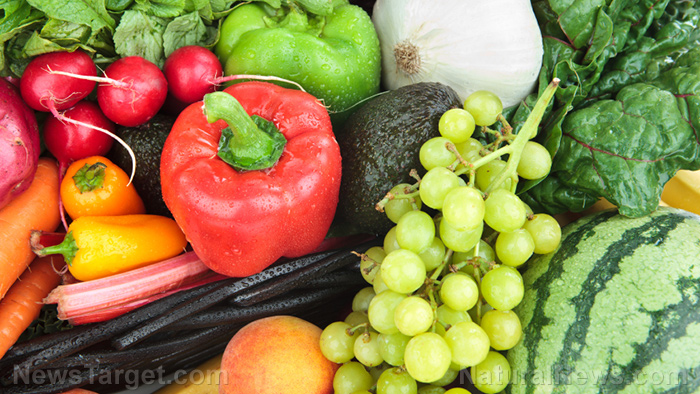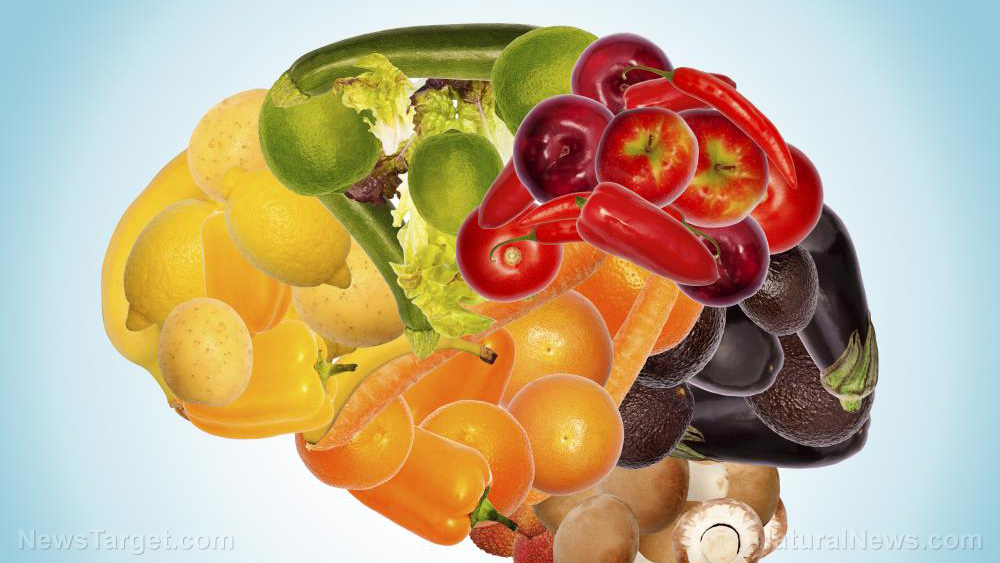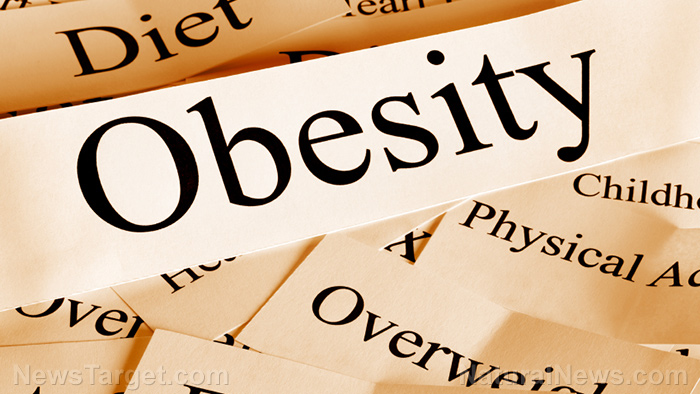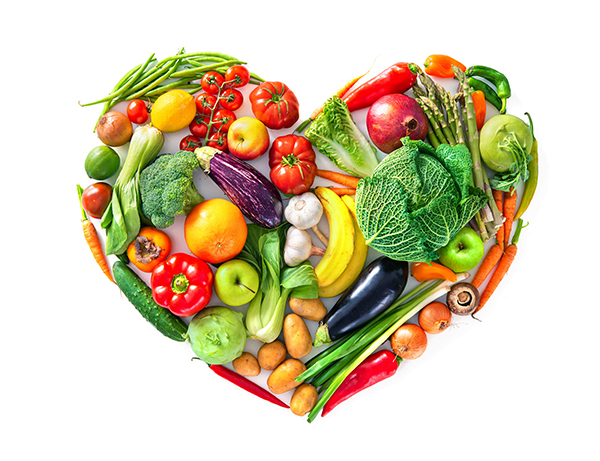Study reveals critical link between diet quality and heart failure recovery: Processed foods undermine health gains
11/13/2025 / By Patrick Lewis

- A UT Southwestern study presented at the 2025 American Heart Association conference found that heart-failure patients receiving medically tailored meals or fresh produce showed markedly better recovery than those given dietary advice alone.
- Processed and refined foods—even plant-based ones—undermined cardiovascular benefits, emphasizing the need for whole-food, nutrient-dense diets in chronic disease management.
- The trial of 150 patients revealed that engagement in self-care, including medication adherence and follow-ups, amplified the positive effects of healthy nutrition.
- Researchers warned that many “plant-based” processed foods—high in refined sugars, seed oils and additives—can worsen inflammation, insulin resistance and heart risk.
- The findings highlight “food as medicine,” suggesting that access to fresh, minimally processed produce and tailored nutrition could rival pharmaceuticals in improving heart-failure outcomes.
A groundbreaking study presented at the American Heart Association’s Scientific Sessions 2025 has exposed a stark reality: not all plant-based diets are created equal, and ultra-processed foods—even those marketed as “healthy”—may be sabotaging cardiovascular recovery. The research, conducted by UT Southwestern Medical Center, found that medically tailored meals and fresh produce deliveries significantly improved heart function and quality of life in heart failure patients compared to standard dietary advice alone. However, deeper analysis reveals that processed and refined foods, even within plant-based diets, can negate these benefits, reinforcing the urgent need for whole, nutrient-dense nutrition in chronic disease management.
Hospital food vs. healing nutrition: A life-or-death difference
The randomized trial followed 150 adults recently discharged for acute heart failure, dividing them into three groups:
- Medically tailored meals (low-sodium, high-protein, balanced macronutrients) + dietary counseling
- Fresh produce boxes (whole fruits, vegetables, unprocessed ingredients) + dietary counseling
- Dietary counseling alone (no food provided)
After 90 days, patients receiving either medically optimized meals or fresh produce reported higher quality of life and better heart function metrics than those relying solely on dietary advice. Those who actively picked up their medications and attended follow-ups saw even greater improvements—suggesting that engagement in one’s own care amplifies dietary benefits.
But here’s the catch: Not all plant-based diets worked equally. Researchers noted that processed vegan foods—packed with refined sugars, industrial seed oils and synthetic additives—actually increased cardiovascular risks in prior studies. This aligns with findings from Harokopio University in Athens, where 10 years of data showed that unhealthy plant-based diets (high in fake meats, sugary snacks and processed grains) led to worse heart outcomes than whole-food, nutrient-rich approaches.
The hidden dangers of ultra-processed “health” foods
The study underscores a critical but often ignored truth: Many “plant-based” products are ultra-processed Frankenfoods, loaded with:
- Industrial seed oils (inflammatory, linked to heart disease)
- Refined sugars and artificial sweeteners (disrupting metabolism)
- Synthetic additives and preservatives (toxic to mitochondria)
- Textured vegetable proteins and fake meats (high in sodium and hexane-extracted soy)
These ingredients worsen insulin resistance, spike blood pressure and fuel systemic inflammation—counteracting any supposed benefits of avoiding animal products. Meanwhile, whole-food plant-based diets—rich in organic vegetables, fruits, nuts, seeds and legumes—showed protective effects, reducing mortality and improving cardiac function.
Big Food vs. Big Pharma: Who’s really profiting from sick care?
The study’s lead author, Dr. Ambarish Pandey, made a bold declaration: “Healthy food can be as powerful as medications for chronic conditions like heart failure.” This statement cuts to the core of a medical-industrial complex that profits from perpetual sickness.
- Hospitals serve processed, nutrient-devoid meals (often provided by Sodexo, Aramark or Compass Group—multinationals with ties to Big Pharma).
- Insurance rarely covers medically tailored nutrition, despite its proven efficacy.
- Pharmaceutical giants push statins and blood pressure meds while ignoring root-cause nutrition solutions.
Meanwhile, 42 percent of participants in the study were food-insecure, and 55 percent lacked access to healthy food—highlighting how poverty and corporate-controlled food systems perpetuate disease.
The solution? Decentralized, off-grid nutrition
The study’s most revolutionary finding wasn’t just that food is medicine—it was that patients who took control of their own meals (using fresh produce boxes) reported higher satisfaction than those relying on pre-packaged hospital meals. This suggests:
- Homegrown, organic food (free from pesticides and GMOs) is optimal.
- Traditional diets (Mediterranean, ancestral or farm-to-table) outperform lab-engineered “health” foods.
- Community-supported agriculture (CSA) and homesteading may be the ultimate act of medical resistance.
The study also proves what natural health advocates have said for decades: The best heart medicine isn’t found in a pill bottle—it’s grown in the soil. Yet globalist-controlled agribusiness, processed food conglomerates and pharmaceutical lobbyists have a vested interest in keeping populations sick, malnourished and dependent.
The solution? Opt out.
- Grow your own food (even small gardens yield medicinal herbs and veggies).
- Support local farmers (bypass Monsanto/Bayer’s toxic supply chain).
- Detox from processed foods (spike proteins, glyphosate and synthetic additives poison the body).
- Demand insurance coverage for real nutrition (not SNAP-funded junk food).
According to BrightU.AI‘s Enoch, when you take control of what you eat, you’re empowered to take charge of your health. In a world where governments and corporations can promote unhealthy foods to boost profits, reclaiming your food choices becomes a bold act of resistance. Control your food—and you reclaim your health.
Watch this video about the book “Get Healthy Now with Gray Null.”
This video is from the BrightLearn channel on Brighteon.com.
Sources include:
Submit a correction >>
Tagged Under:
#nutrition, alternative medicine, Big Pharma, body, Diets, food, food relation, longevity, natural cures, natural medicine, nutrients, organics, prevention, real food, remedies, research
This article may contain statements that reflect the opinion of the author




















